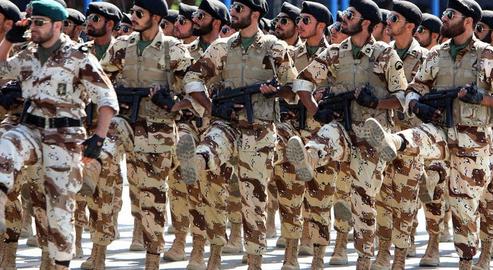I’ve been re-reading some of the19th Century Russian classics – Tolstoy’s Anna Karenina, Chekov’s short stories and Turgenev’s Virgin Soil. It’s striking how Russia and Iran share one fundamental feature: they both define themselves largely in opposition to the West.
In Russia, the idea is cloaked in Slavic nationalism and faith in autocracy. In Iran, it takes the form of politicized Shia Islam. In both countries, it justifies people’s desire to be unique or “different,” and rests on the assumption that the West cannot be trusted.
Consider the following passage from 1864 by the poet and Slavophile Fyodor Tyutchev:
There can be no alliance between Russia and west..... There is not a single interest nor a single trend in the west which does not conspire against Russia, especially her future, and does not try to harm her. Therefore, Russia’s only natural policy towards the west must be to seek, not an alliance with the western powers, but their disunion and division. Only then will they cease being hostile to us, not of course out of conviction, but out of impotence.
If we substitute “Russia or Russian” in that passage with “Iran or Iranians,” those lines could have come directly from the lips of Iran’s Supreme Leader talking about America and the dominant European powers — of Germany, France and the UK.
The underlying position guides the sermons delivered by Ali Khamenei’s religious yes-men at Friday Prayers in more than 900 cities and towns every week.
It also informs the so-called “Resistance Geography” of the Revolutionary Guards Corps’ military doctrine in the region. That is, a commitment to waging proxy wars to guarantee and maintain Iran’s political isolation, and as far as possible inflict disarray and inconvenience on western opponents.
Russian and Iranian exceptionalism assumes their respective superiority.
Remember ex-President Mahmoud Ahmadinejad in the fall of 2010 suggesting that Iran should be “helping other nations and reforming global management,” and saying that Iran was “a role model for the world”?
Supreme Leader Ali Khamenei, channeling his fellow autocrat President Vladimir Putin, has repeated over and over that Iran must “utterly forsake western countries as friends or allies.”
(Though he did allow that certain European countries might be useful as interlocutors with America, or as investors in Iran.)
Henry Kissinger writes in his book World Order: “Asia [which many would argue includes Russia] recalls .... concepts of order with nostalgia, and churns with rivalries and historical claims of the kind that dashed Europe’s order a century ago..... driving disagreement to the edge of confrontation.”
Iran and Russia are to this day preoccupied by labyrinthine internal rivalries and historical claims.
They chafe against the relative simplicity of Westphalian order established more than three centuries ago, which recognizes modern nation-states’ sovereignty. Our Supreme Leader doesn’t see the world as a colorful and varied assemblage of countries and cultures. Instead, he divides the world into two: Them and us. The West and the Islamic umma.
President Putin’s world view is more sophisticated. He, at least, recognizes that there is a powerful new power rising in the east — China. But in many ways, President Putin’s basic conviction echoes that of Tyutchev.
Neither Putin nor the Supreme Leader is interested in evolving beyond what amounts to stubborn chauvinism, even though that is exactly what millions of their citizens want.
visit the accountability section
In this section of Iran Wire, you can contact the officials and launch your campaign for various problems




















comments